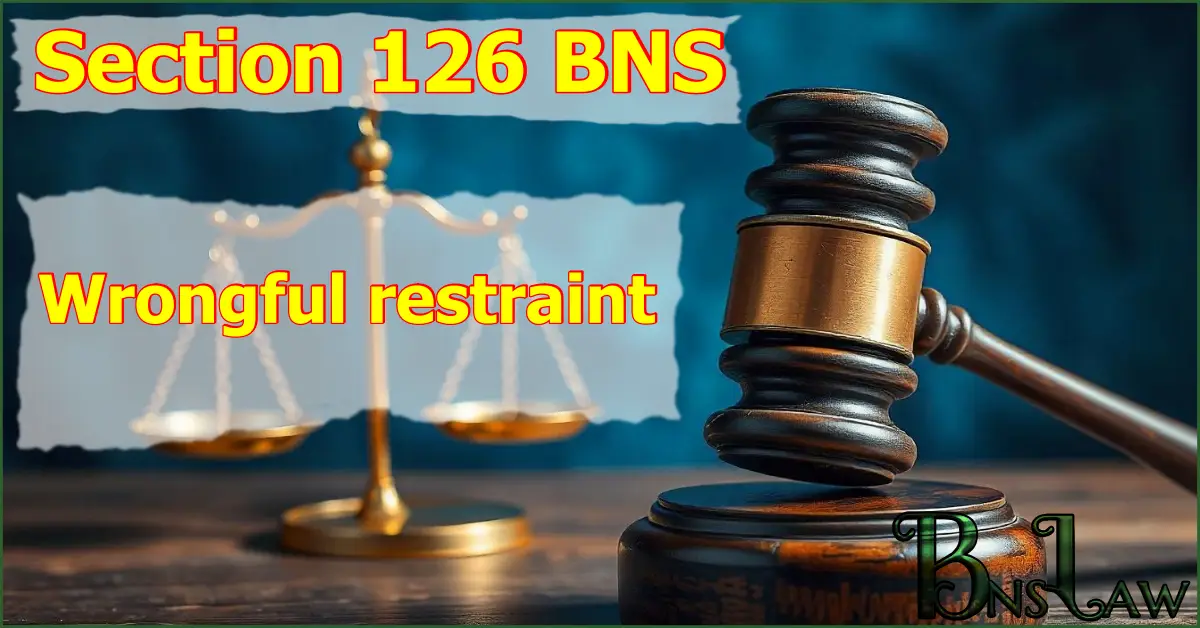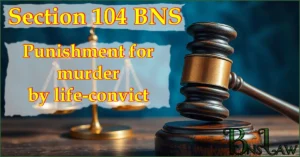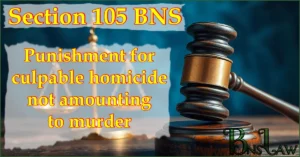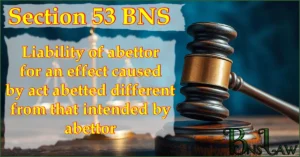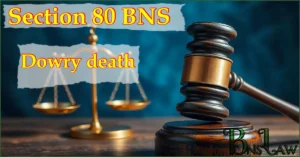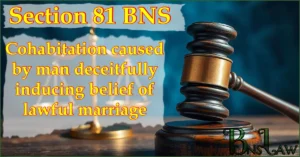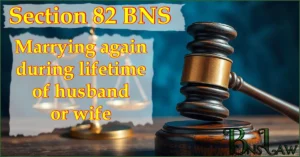Section 126 BNS | BNS 126 | Wrongful restraint Section
126(1) BNS
Whoever voluntarily obstructs any person so as to prevent that person from proceeding in any direction in which that person has a right to proceed, is said wrongfully to restrain that person.
Exception— The obstruction of a private way over land or water which a person in good faith believes himself to have a lawful right to obstruct, is not an offence within the meaning of this section.
Illustration
A obstructs a path along which Z has a right to pass, A not believing in good faith that he has a right to stop the path. Z is thereby prevented from passing. A wrongfully restrains Z.
126(2) BNS
Whoever wrongfully restrains any person shall be punished with simple imprisonment for a term which may extend to one month, or with fine which may extend to five thousand rupees, or with both.
READ OTHER SECTIONS OF CHAPTER VI — OF OFFENCES AFFECTING THE HUMAN BODY
FAQs of BNS Section 126
-
126 BNS punishment and fine
Punishment and fine under Section 126(2) of the BNS: Simple imprisonment for 1 month, or fine of 5,000 rupees, or both.
-
126 BNS cognizable or not
The offence under Section 126 of the BNS is cognizable.
-
126 BNS bailable or not
The offence under Section 126 of the BNS is bailable.
-
126 BNS trial court
Offence specified in Section 126 of the BNS is triable by Any Magistrate.
Important Points
- Cognizable Offences: These are offences where a police officer can arrest a person without a warrant.
- Non-Cognizable Offences: These are offences where a police officer cannot arrest a person without a warrant.
- Bailable Offences: These are offences where the accused can get bail from the police station itself. All bailable offences are listed in the First Schedule of the Bharatiya Nagarik Suraksha Sanhita (BNSS).
- Non-Bailable Offences: Offences in which bail is not granted directly from the police station but after hearing the case in the court, the judge decides when bail will be granted. All non-bailable offences are listed in the first schedule of the Bharatiya Nagarik Suraksha Sanhita (BNSS).
- In the above FAQ, “trial court” means the court that has jurisdiction to try the offence.
- In the above FAQ, the expression “Magistrate of the first class” and “Any Magistrate” does not include Executive Magistrates.
Read other Sections of the BNS
Reference Link: New Criminal Laws (BNS), Ministry of Home Affairs

